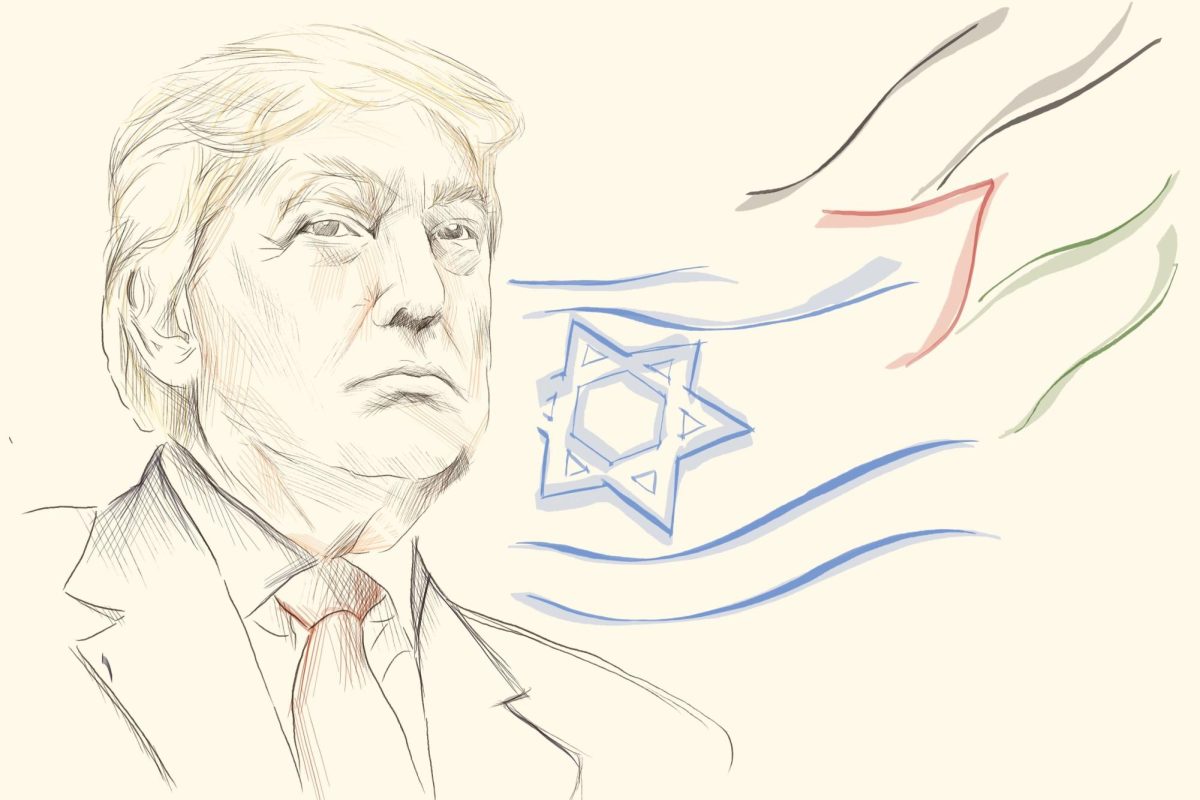Nearly a year into President Donald Trump’s second term, his foreign policy is following the same chaotic rhythm as his first — especially regarding the Middle East. His approach is still defined by reckless decision-making, abrupt reversals, and a glaring indifference to humanitarian cost. His conduct abroad mirrors the Republican Party’s internal fracture between interventionists and isolationists and leaves U.S. policy to chaotically swing between assertion and disengagement.
This is undoubtedly an uncomfortable paradox: Trump’s impulsiveness has inflicted deep harm, and his approach is more erratic than that of Democrats. But in the context of his own party’s hawkish elites — whose ideological commitment to force has driven decades of endless wars — Trump’s unpredictability sometimes acts as a brake on catastrophe, rather than its cause. This reveals the true root of Trump’s blend of chaos and restraint in foreign policy: the split identity of the Republican Party.
Torn between foreign policy hardliners who urge confrontation and isolationists who preach withdrawal, Trump governs by impulse, not conviction. One day, he’s echoing the neoconservative belief that military might is moral clarity; the next, he’s parroting populist beliefs that America should not be involved in conflicts beyond its borders.
Few moments capture this point more clearly than his handling of Israel in its unfulfilled Gaza ceasefire, its unauthorized strikes on Qatar, and its attacks on Iran.
During the first few months of his presidency, Trump appeared to exercise measured restraint and kept Prime Minister Benjamin Netanyahu’s government from further escalation. But that discipline quickly unraveled in March, when Trump quietly allowed Netanyahu to break the ceasefire and strike Gaza.
The consequences of this soon became clear through the aggressive cruelty of the so-called Gaza Humanitarian Foundation, a joint venture between the U.S. and Israeli governments, led by an evangelical figure with close ties to Trump.
The foundation was a front for systemic brutality disguised as charity. Israeli forces stationed around aid centers were ordered to open fire on unarmed Palestinians waiting for food, even without an existing threat.
Though promoted as an independent relief organization, the GHF was actually designed to sideline the United Nations and existing aid networks by managing humanitarian relief in Gaza. Trump’s previous cautious management of an uneasy truce quickly turned to tacit approval of renewed violence.
This aggression turned to chaos as Trump allowed the hostage crisis to continue until Netanyahu struck Qatar — a U.S. partner — without Trump’s authorization. The strike blindsided the White House and upended the administration’s sense of control. Though Trump had tolerated Netanyahu’s defiance on Gaza and looked the other way, Qatar led the administration to finally recognize that aligning with Israel’s recklessness risked alienating key allies.
Trump then dispatched his son-in-law Jared Kushner and Special Envoy to the Middle East Steve Witkoff to resolve the hostage situation. Their solution was not a moral reckoning — it was an act of damage control.
Trump’s handling of the crisis reflected his pattern of chaotic cooperation with Netanyahu. He allowed Israel to resume the war in Gaza even as there were still Israeli hostages that remained in captivity. He acted only once the consequences began to threaten his own interests with wealthy Arab partners. What appeared to be restraint was really indifference, and when indifference backfired, he was forced to act.
If Gaza revealed the destruction born of Trump’s silence, Iran exposed the volatility of his loud pursuit of strength. In June, he approved a series of Israeli strikes on Iranian targets, followed by limited U.S. attacks that nearly ignited a regional war. Trump basked in the spectacle of power that Republican war hawks prophesied to him. But three days later, Trump abruptly changed gears. In the middle of night, he blasted out a frantic all-caps post on Truth Social demanding for Israel to turn its jets around.
Trump’s inconsistent policymaking is really a reflection of a divided Republican Party. Unlike other Republican leaders, he doesn’t outright dismiss the isolationists. Figures like Tucker Carlson, a former Fox News host, who frame foreign restraint as patriotism have Trump’s ear; in his other ear, evangelical war hawks promise divine victory through force.
Within the Republican Party spectrum, Trump’s impulsiveness as a leader passes for moderation. His unpredictability makes him dangerous, but it also spares America from the kind of sustained ideologically-driven wars that made many Americans lose their patriotic spirit, leaving them disillusioned and burdened by the cost. Trump’s foreign policy offers no clear direction, only the uneasy assurance that America will keep swaying between restraint and aggression, never quite choosing either.











